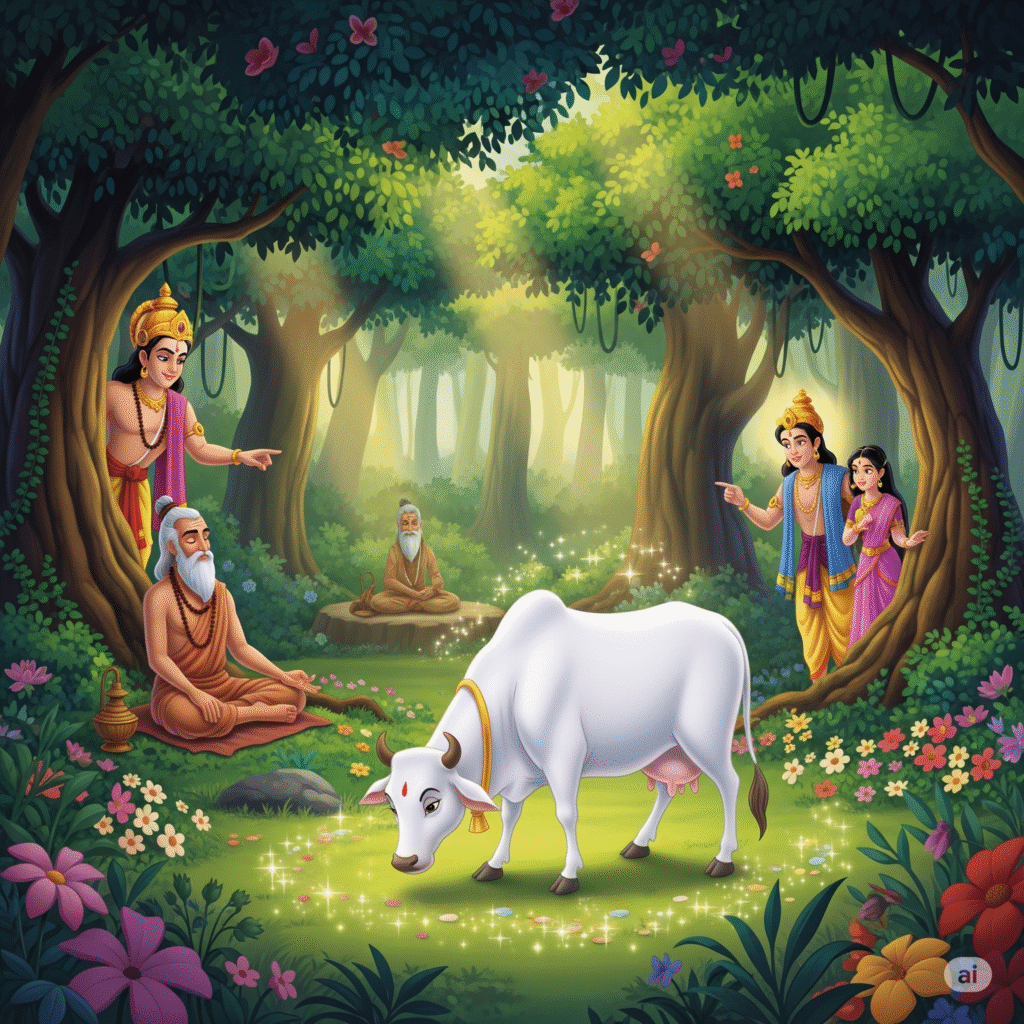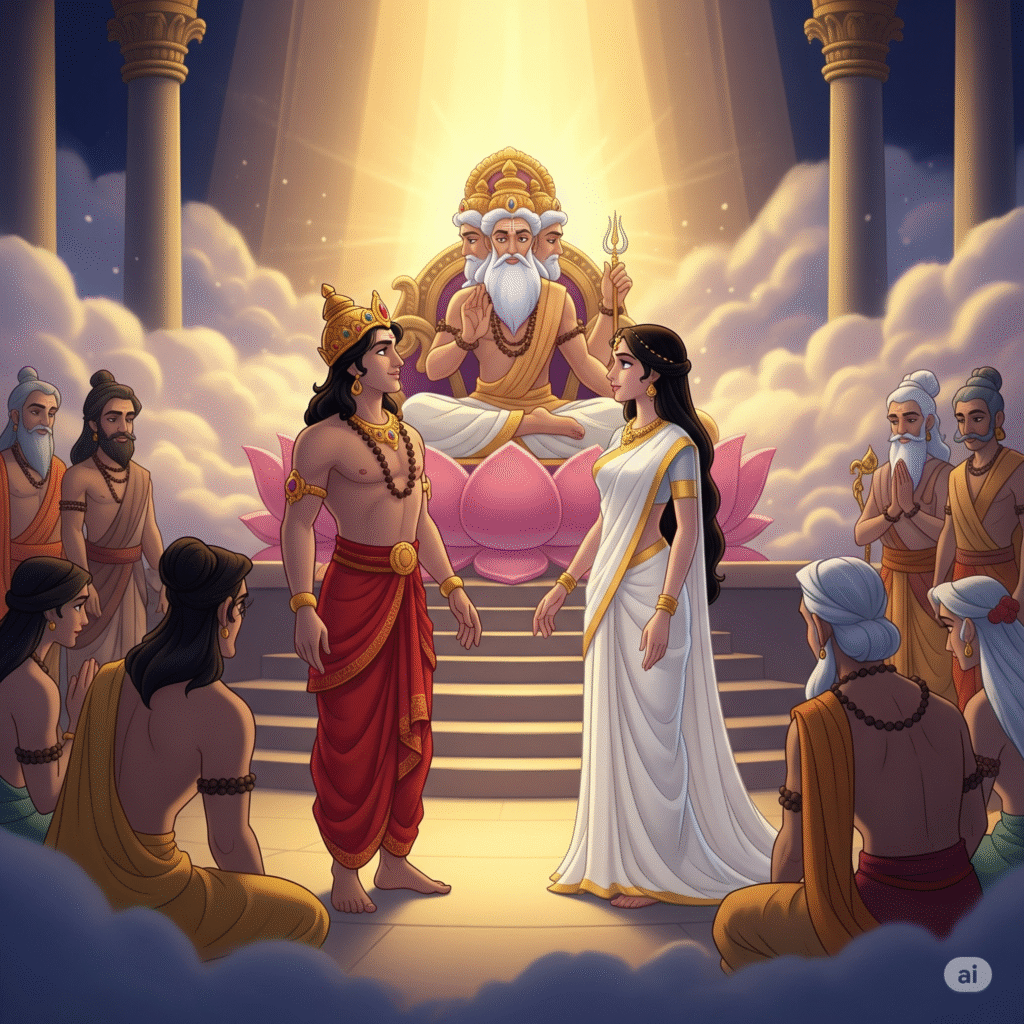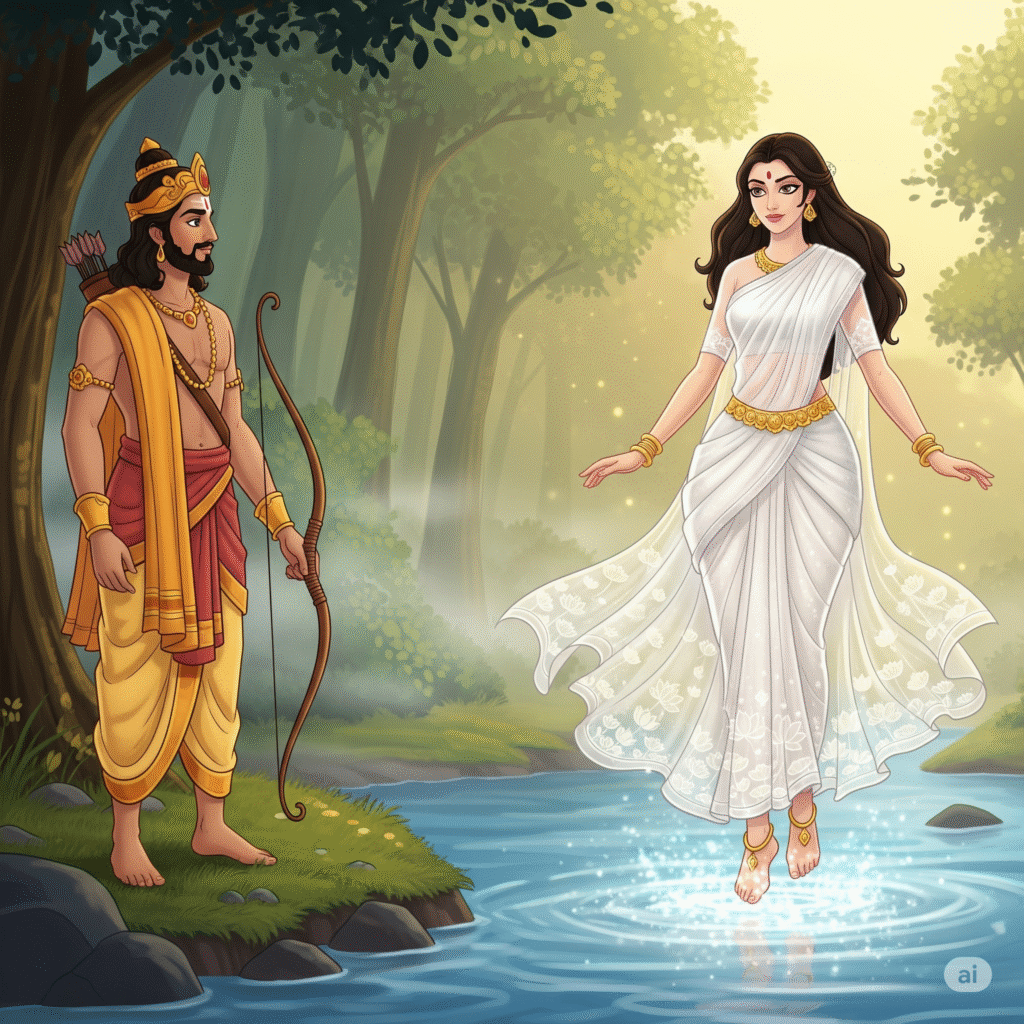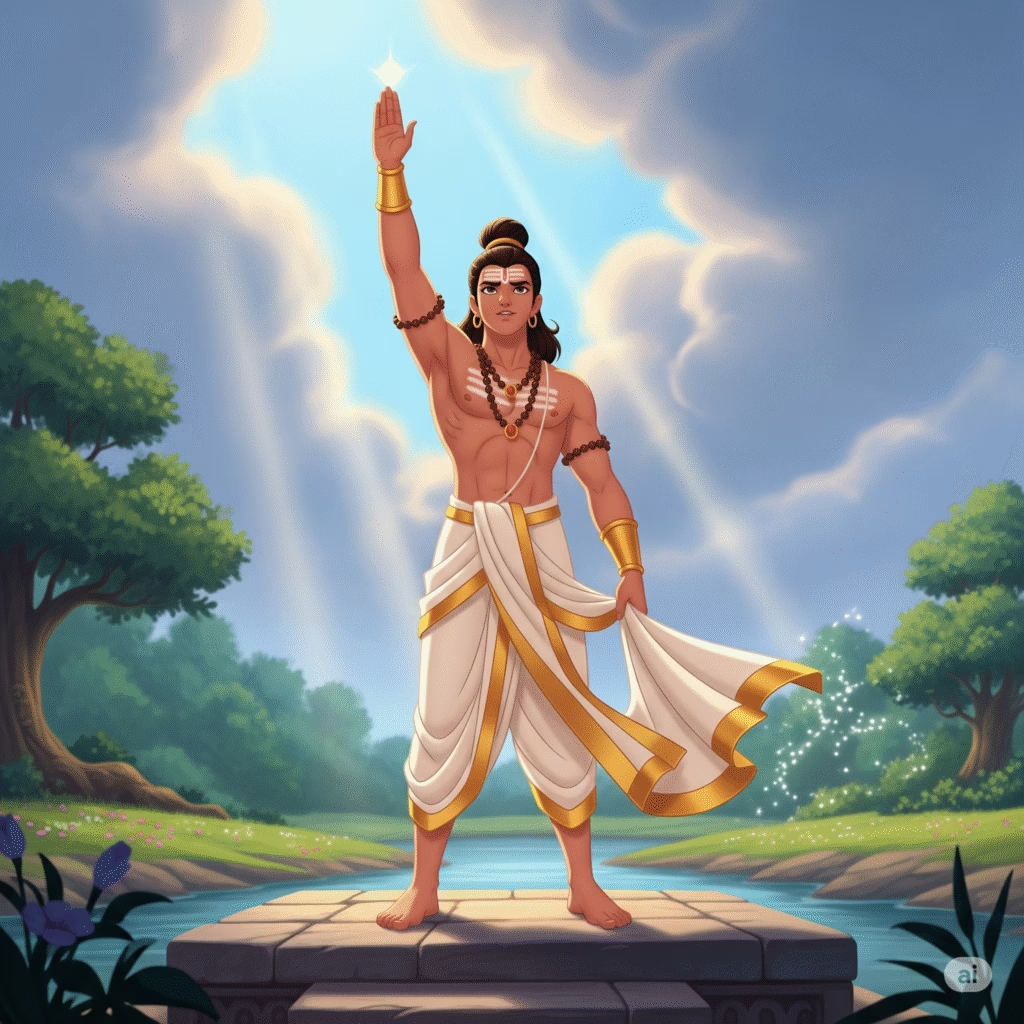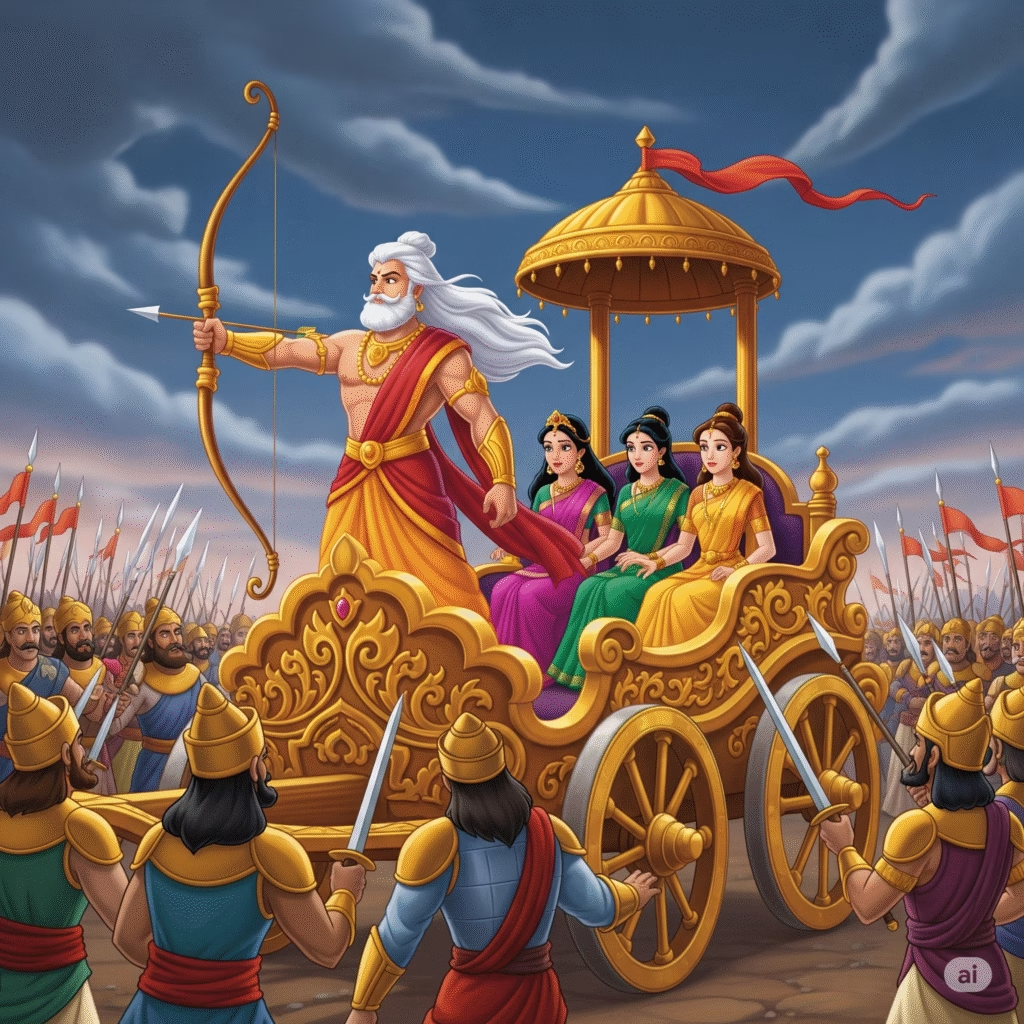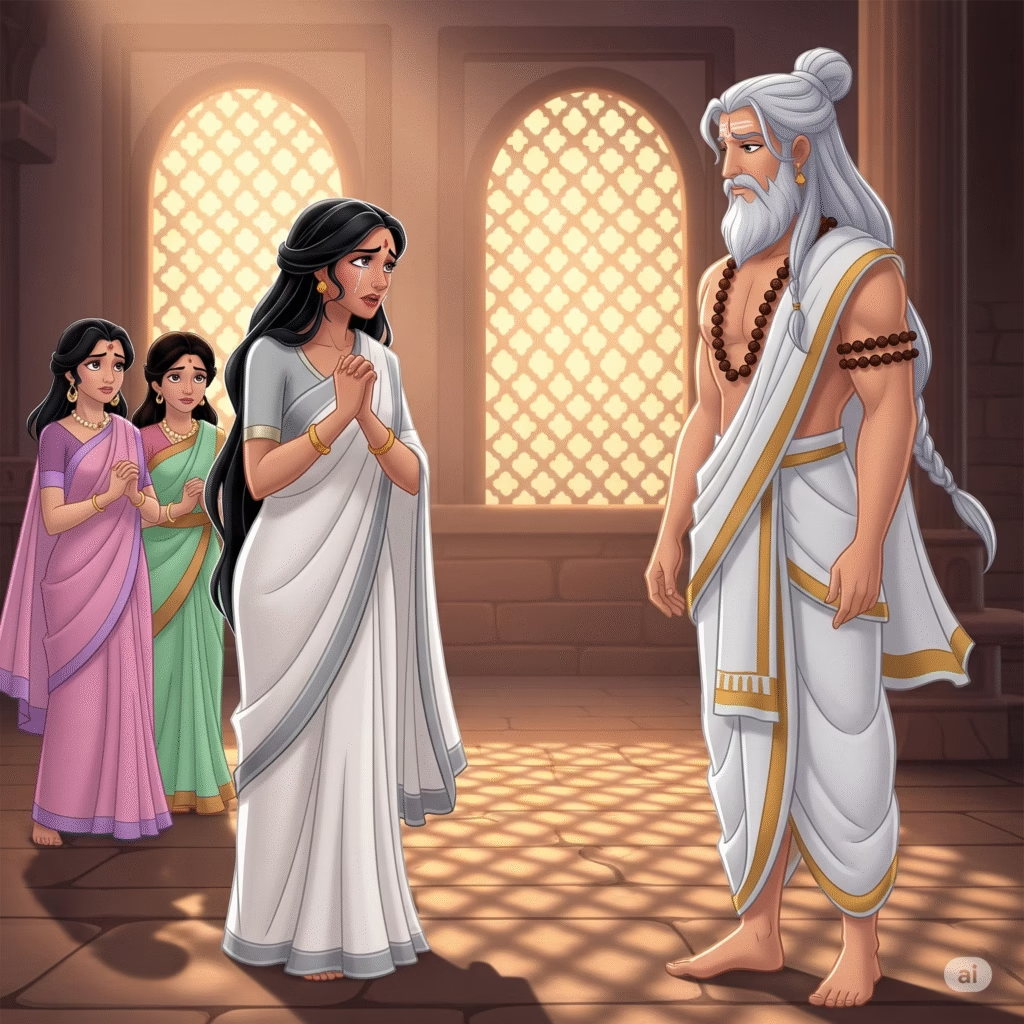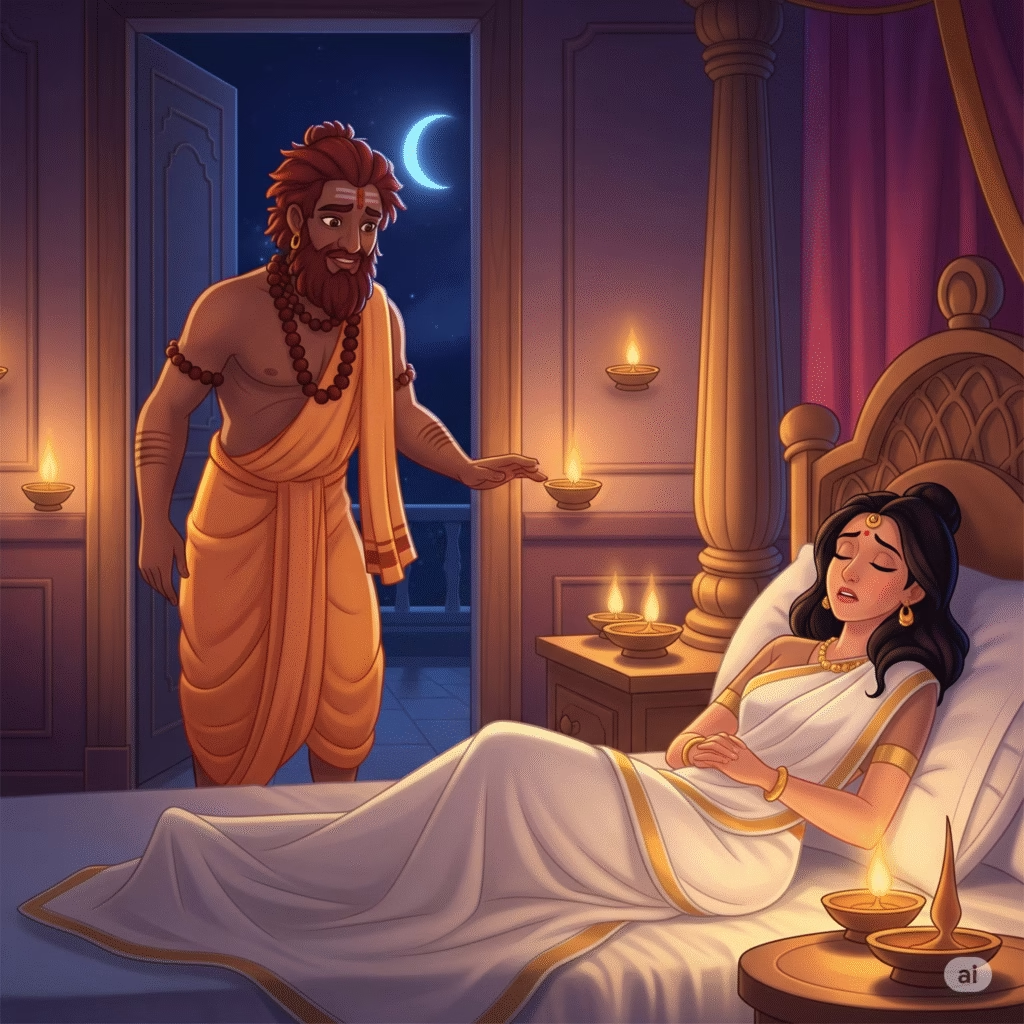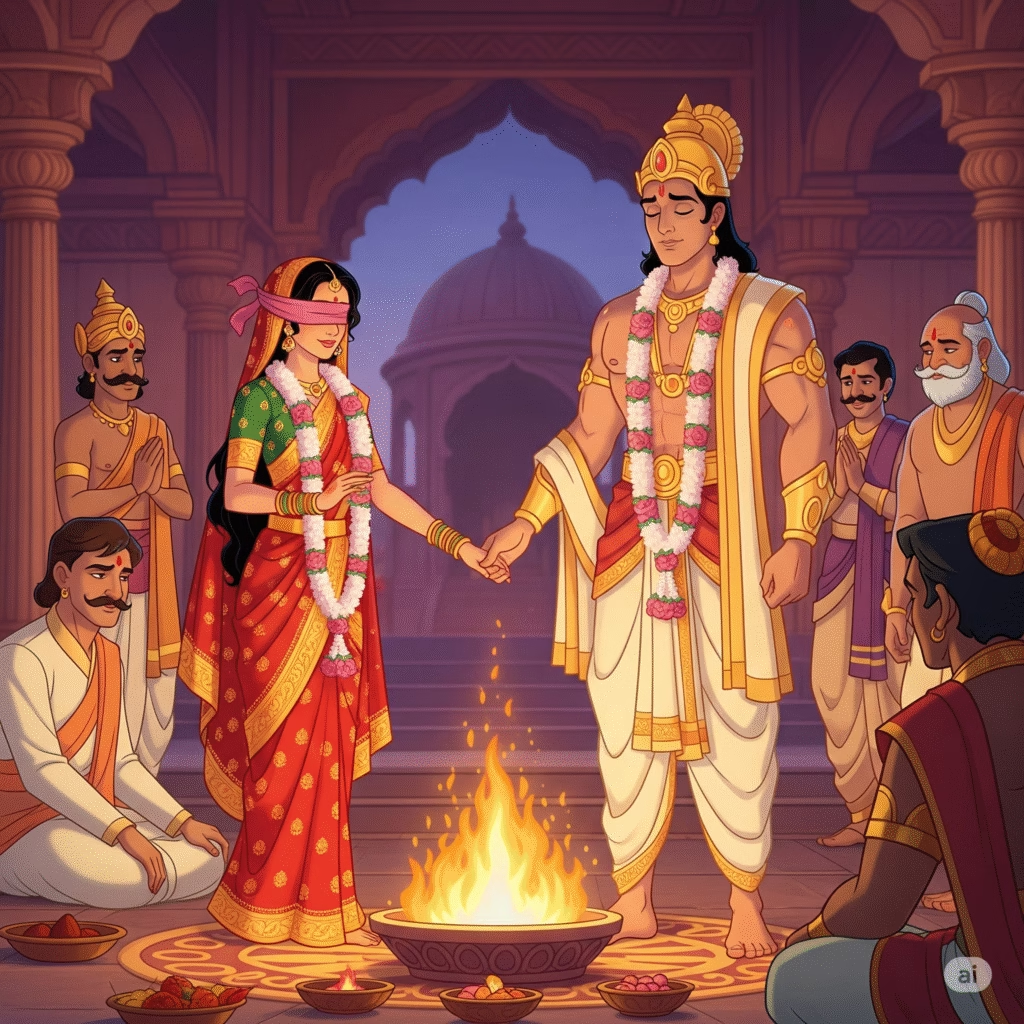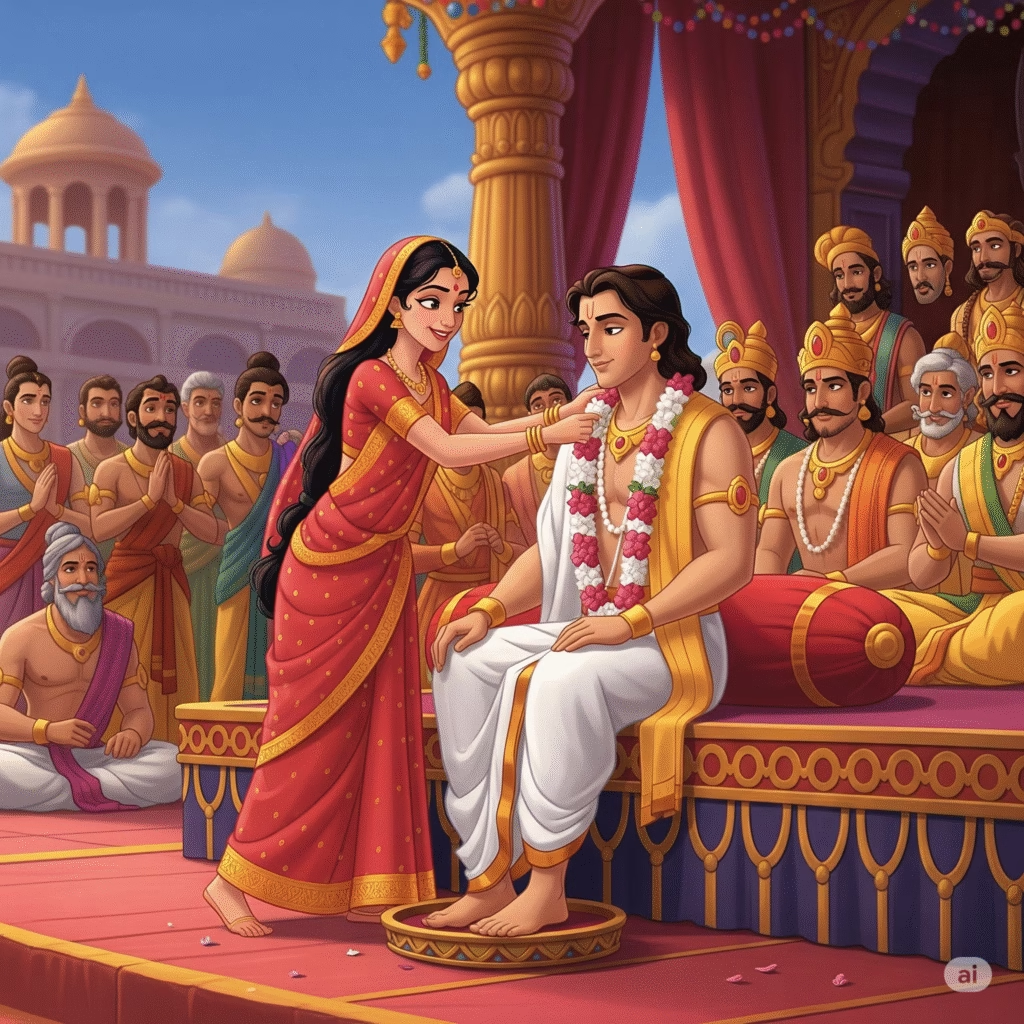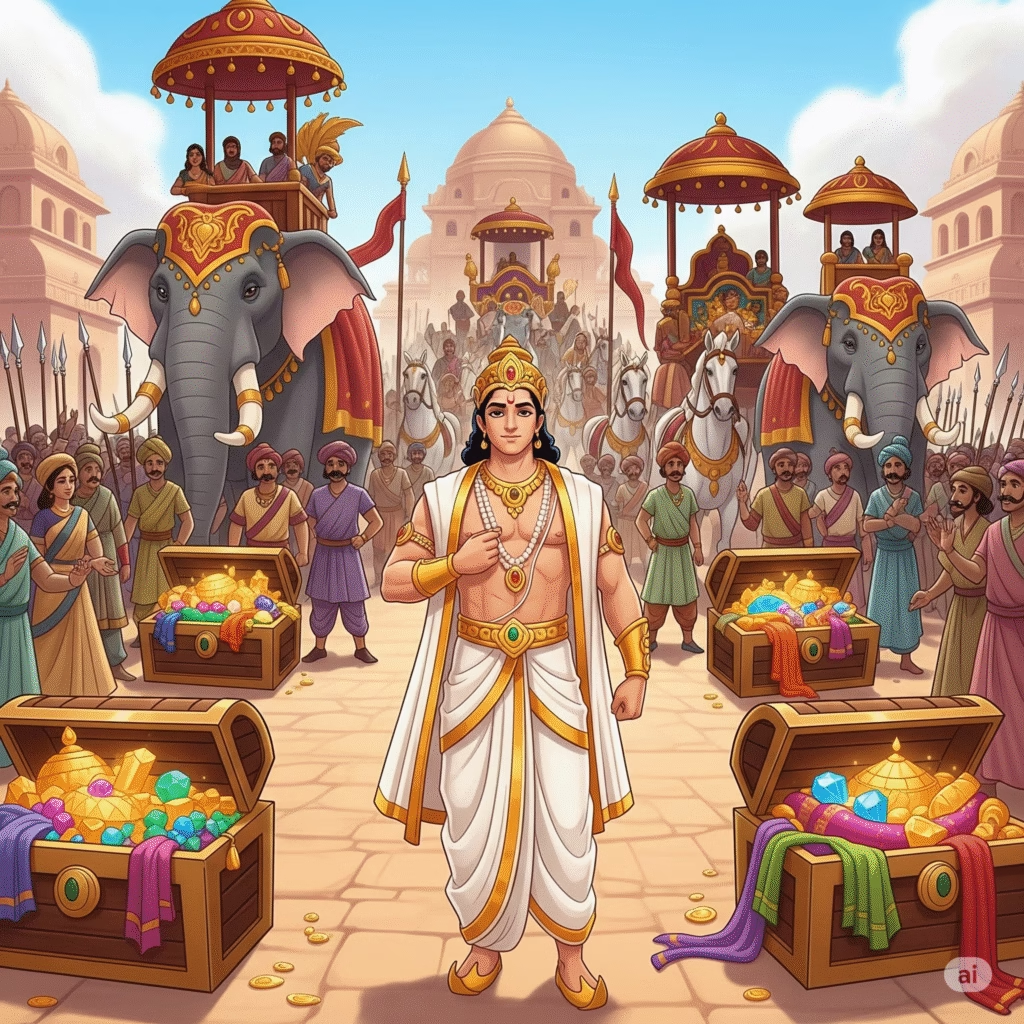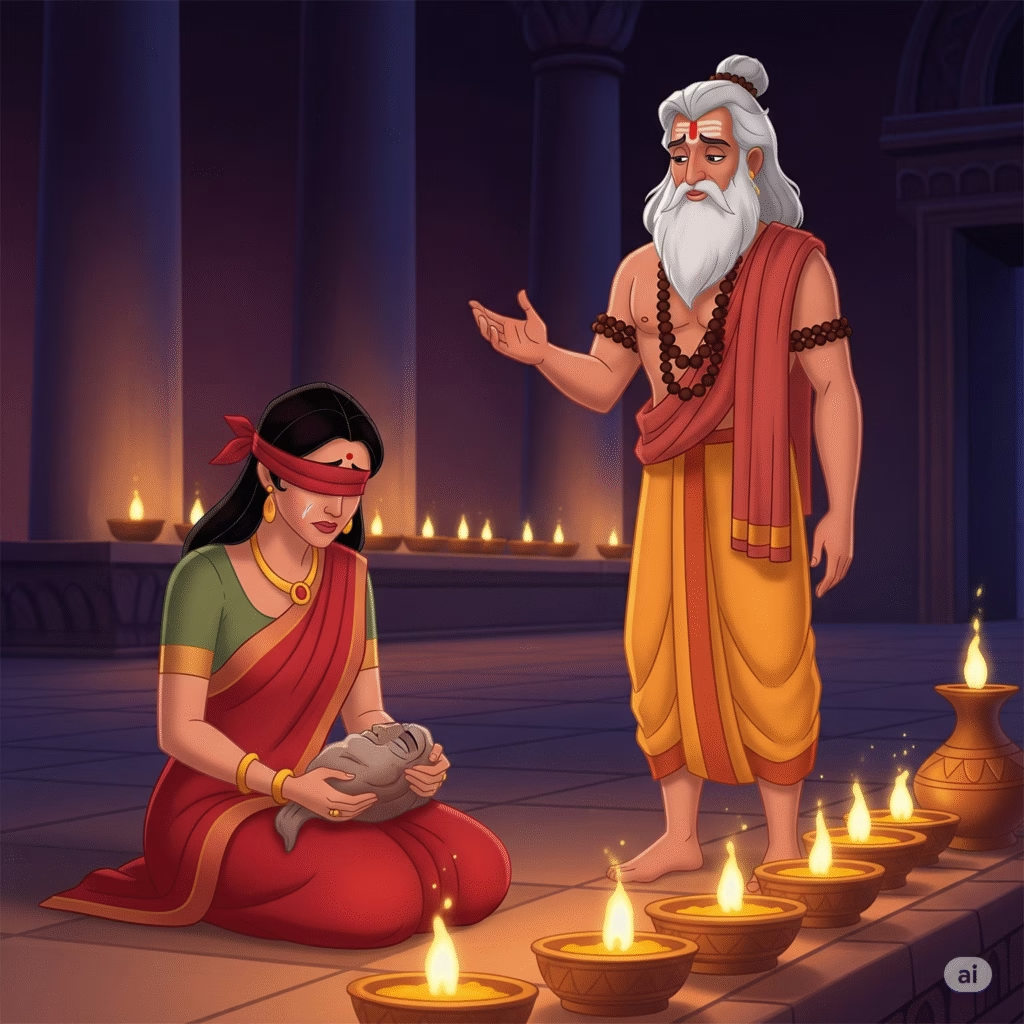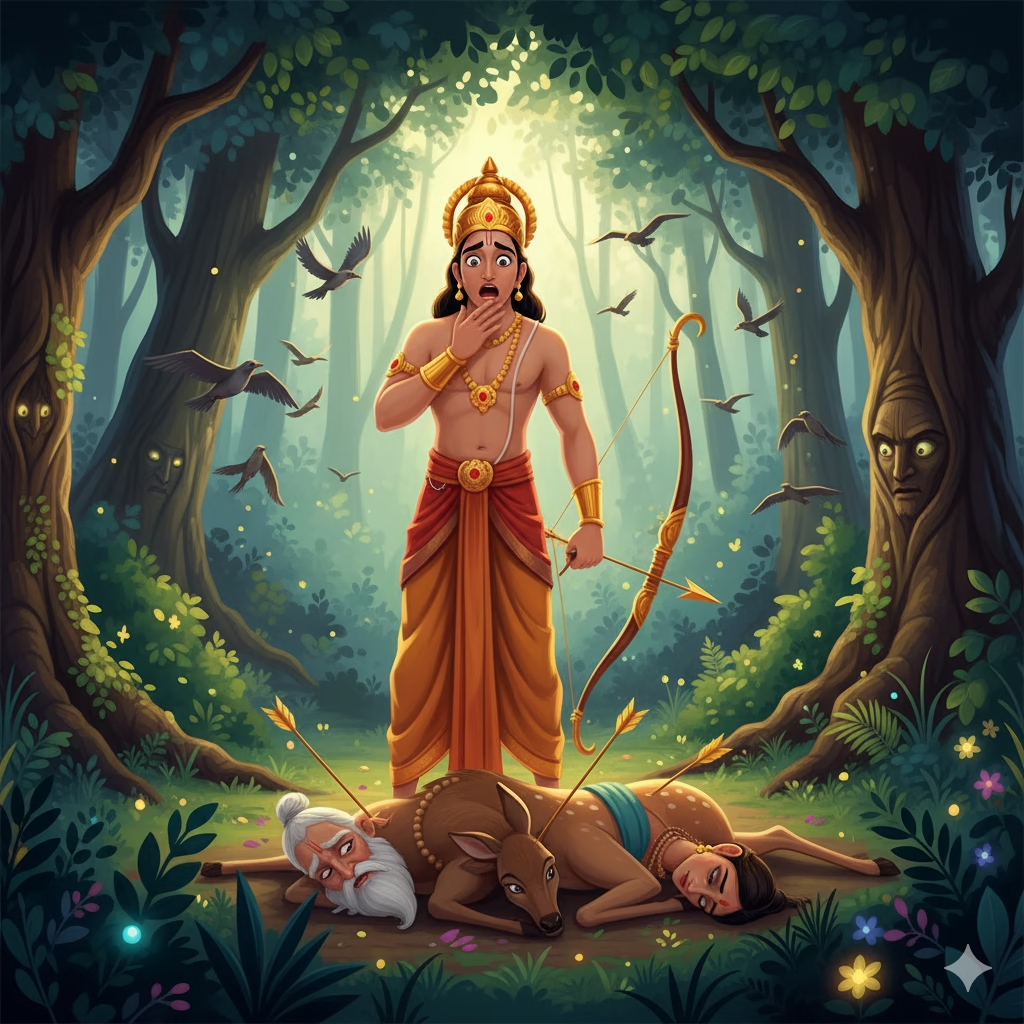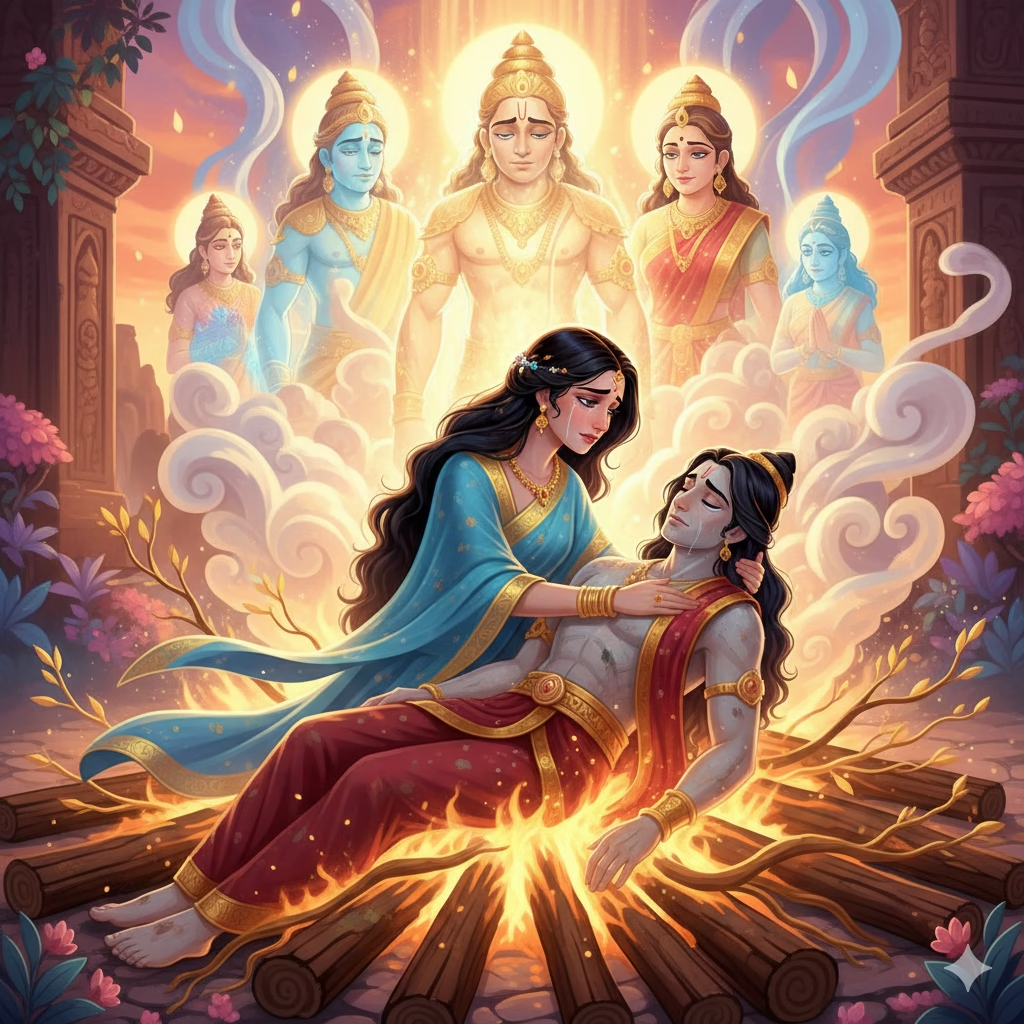“What wrong have the Vasus done, O Devi?” This was the heartfelt question Shantanu asked Ganga as she cradled their newborn son by the river. A divine mystery had long weighed on his mind*: why were the gods born as the mortals?* Ganga, calm and composed, began unfolding a tale from an age lost to time.
In a fragrant forest nestled on the slopes of the Himalayas, there once lived a sage named Apava. His hermitage was a haven of peace. Wild animals roamed freely, flowers bloomed in every season, and the forest resonated with serenity. This sage was no ordinary man. He had attained great yogic powers and had declared a heavenly cow, Nadini. This celestial cow was no ordinary being—she was born from Surabhi, the divine mother of all cows. Nadini had a lustrous and well-proportioned body, full milk-laden udders that shimmered with nourishment not just of the body but for longevity and vitality, and a calm, fearless presence, for she roamed freely in the sacred forest and was untouched by danger or desire. Her gaze was gentle, her movement graceful, and her aura was magnetic.
One day, eight mighty Vasus—celestial beings who ruled over natural elements—came wandering into the sage’s forest. They were accompanied by their consorts and thus delighted in the beautiful forest. One of them was Dyu. As fate would have it, Dyu’s wife saw Nadini. Curious, she asked her husband about her. The great Vasu replied, “Beloved, she is Nadini. She is known for her extraordinary powers of fulfilling any desire. Sages consider her a walking tirtha. Wherever she steps, the forest feels blessed. Her presence enriches the soil and calms the animals. Sage Apava has consecrated her as his homadhenu—the sacred cow of sacrifice, the heart of his ritual fires. Her milk can grant not just life, but youth for ten thousand years.”
Dyu’s wife got enchanted by her. But it was more than beauty—she longed for Nadini. There was a mortal princess, and she was a very dear friend of Dyu’s wife. The princess, though radiant and young, lived in the world of decay and disease (the mortal world). Hence it was sure that one day she would die, and then Dyu’s wife would be separated from her dear friend forever. Dyu’s wife thought, “If my friend drinks the milk of this mortal cow, she will remain forever youthful and healthy.” Her desire, born out of love, loyalty, and friendship, became too strong to resist.
She turned to Dyu and pleaded, “My lord, let us take this cow. Bring her to me. I want it for my dear friend who lives in this mortal world. There is no greater gift I can ask from you.” Moved by her plea, Dyu conspired with his brothers, the other Vasus, to steal Nadini. They then stole the cow from Apava’s hermitage.
When Apava returned and found his beloved cow missing, he closed his eyes and meditated to realize where she was. He immediately knew what had happened there in his absence and who was responsible for it. Furious, he uttered a terrible curse: “Since you, Vasus, have stolen my divine and dear cow, all of you shall be born in the mortal world!“ Though the Vasus, after hearing the curse, returned to beg forgiveness, the sage remained firm. He offered only one consolation, “ Seven of you will be freed from the curse soon after birth. But Dyu—the instigator—shall suffer a long life on Earth, devoid of children, abstaining from worldly pleasures, and devoted to dharma and wisdom.”
This was Devavrata—later known as Bhishma—the one whose birth was burdened by a curse. He was bound to this mortal world not by sin, but by another’s desire. His life would later be one of sacrifice, wisdom, and vow-bound silence—the perfect vessel for a soul that once defied a sage. And so, when we look at Bhishma, we don’t just see a warrior; we see the cost of desire, the weight of dharma, and the journey from heaven to the battlefield of life.
Reading this story, one might wonder, why didn’t the Vasus simply ask sage Vasishta for the divine cow rather than stealing it? Why resort to theft when one is himself a divine being and also knows the powers of a great sage? Well, when desire joins hands with ego, even the wisest forget the weight of dharma. Sometimes knowing what is right is not enough—desire makes you pretend you don’t or maybe gives you the power and courage to ignore it. Dyu’s wife’s longing to help her mortal friend was not wrong, but it became wrong the moment it turned into an obsessive urge. And in trying to fulfill it, Dyu also allowed ignorance and arrogance to take over him. The fact that he didn’t ask for her and rather stole her was his pride. Asking for the cow seemed beneath the pride of a god, especially from a sage who, despite his spiritual might, was still a mortal being and not divine like them. Dyu was perhaps also under the illusion that his status would shield him from consequences. Thus, rather than feeling the humility of refusal, the Vasus chose secrecy over honesty, hoping, perhaps foolishly, they might escape the consequences. But in this universe, nothing remains hidden.
Vasus didn’t fall because they lacked wisdom—they fell because they ignored it.
Journaling Prompts
- When faced with a moral choice, do you let your pride stop you from doing what is right?
- Have you ever disregarded your inner wisdom in order to satisfy a temporary desire?
- When someone else’s desire or attachment entangles you, are you aware of the karmic weight it might carry?

